20+ CRM Examples to Download
In today’s highly competitive business landscape, maintaining strong customer relationships is paramount. That’s where Customer Relationship Management (CRM) comes into play. CRM is a powerful tool that businesses use to effectively manage interactions with their customers, streamline sales processes, and boost overall customer satisfaction. In this article, we will explore the concept of CRM, provide a step-by-step guide on how to use CRM effectively, address common FAQs, and offer a creative conclusion that highlights the significance of CRM in achieving business goals.
1. Fundraising CRM Template
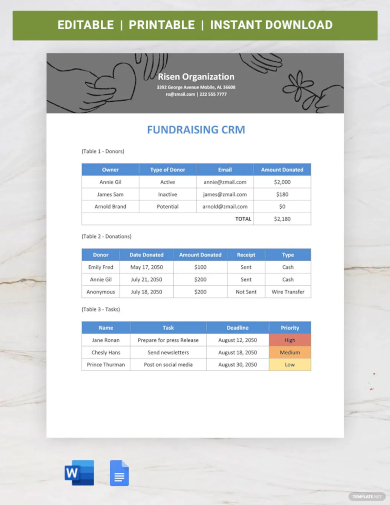
2. Real Estate CRM Template
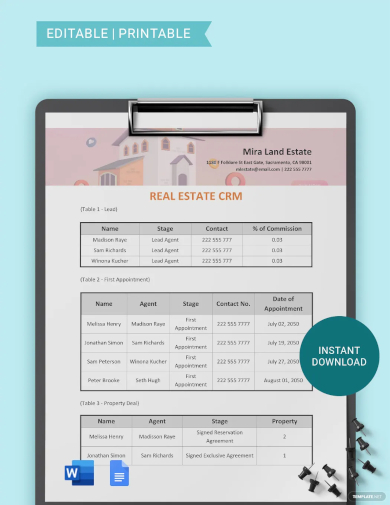
3. Healthcare CRM Template
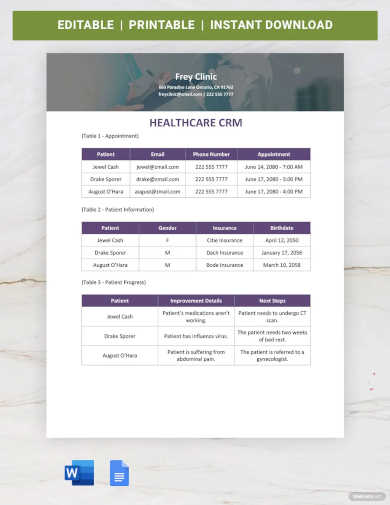
4. School CRM Template
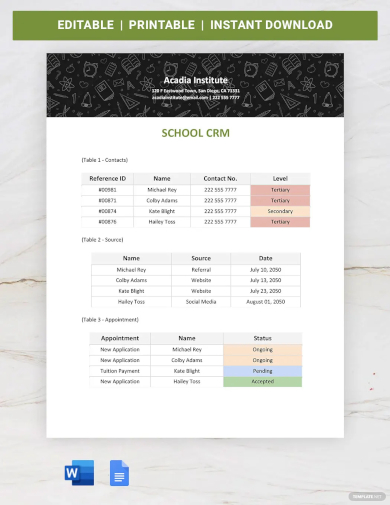
5. Sales Pipeline CRM Template
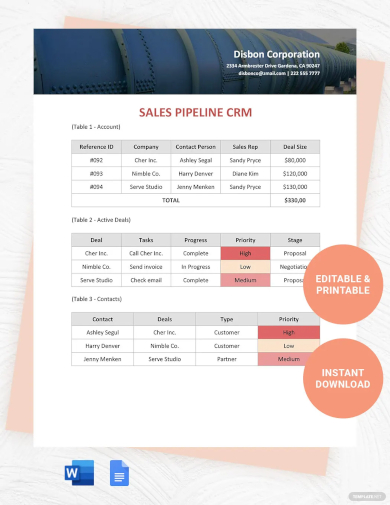
6. CRM as a Socio-Technical Resource
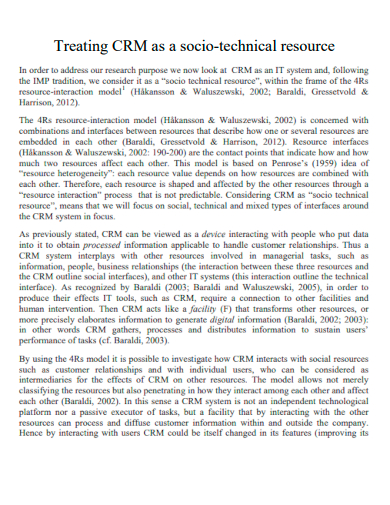
impgroup.org
7. Study of CRM Policies
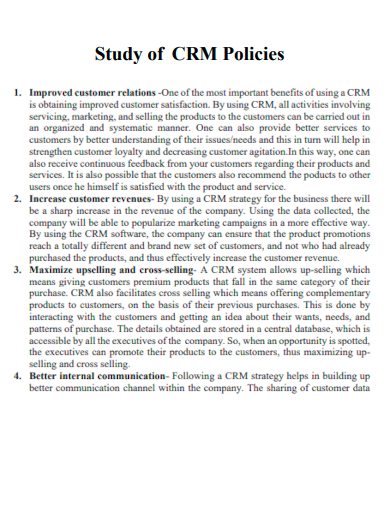
ripublication.com
8. CRM and its Impacts on Business
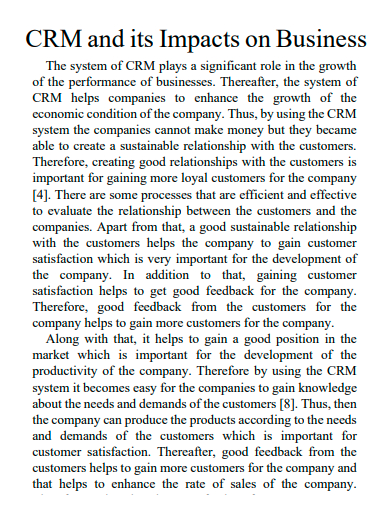
technoaretepublication.org
9. Application of CRM Strategy
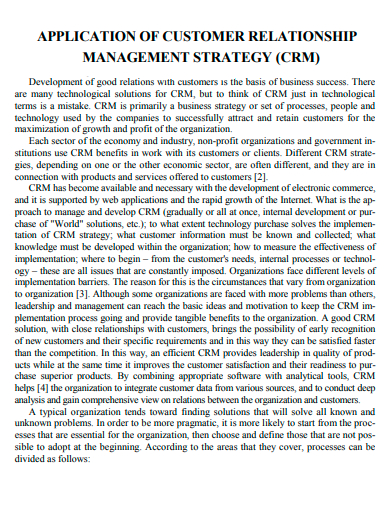
junis.ni.ac.rs
10. Innovation and Trends in CRM
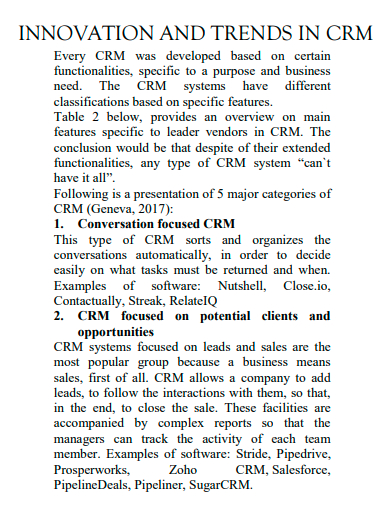
seaopenresearch.eu
11. CRM in Alpine Tourist Destinations
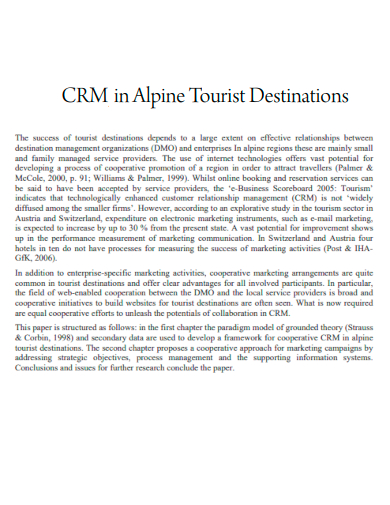
aisel.aisnet.org
12. CRM in Government
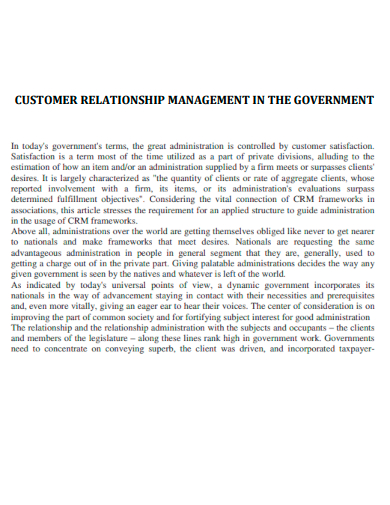
asecu.gr
13. CRM in Financial Service
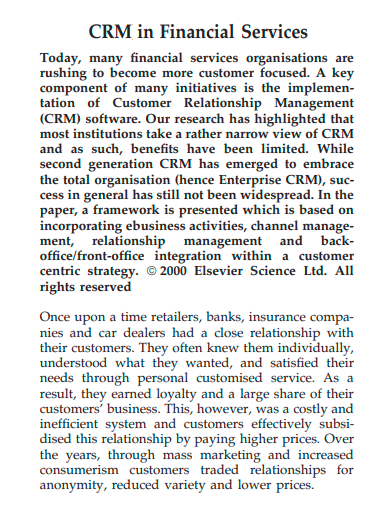
paginas.fe.up.pt
14. CRM in Information Product Pricing
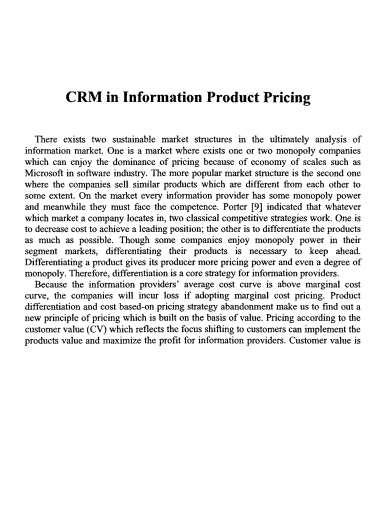
springer.com
15. CRM Solutions Empower Your Business
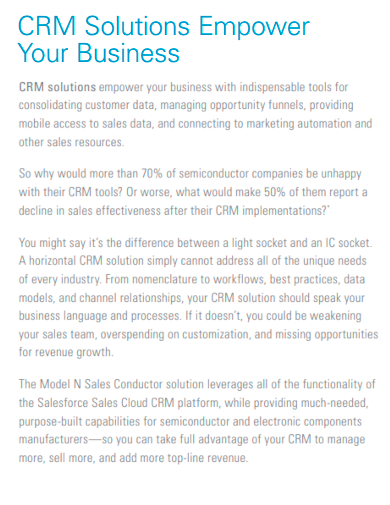
modeln.com
16. CRM in Banking Sector
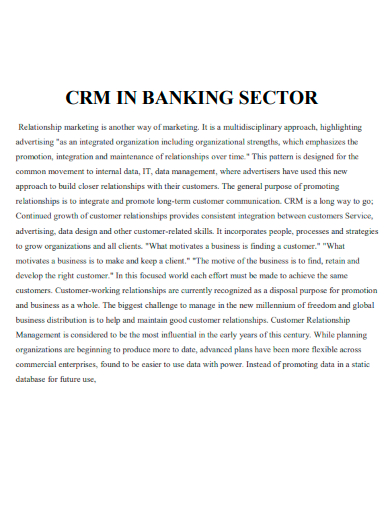
drnishikantjha.com
17. CRM in Building Brand Equity and Credibility
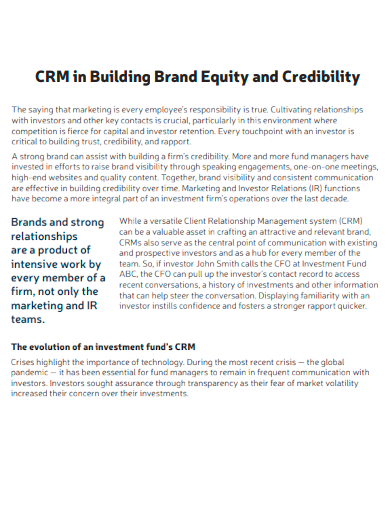
richeymay.com
18. CRM in Gaming
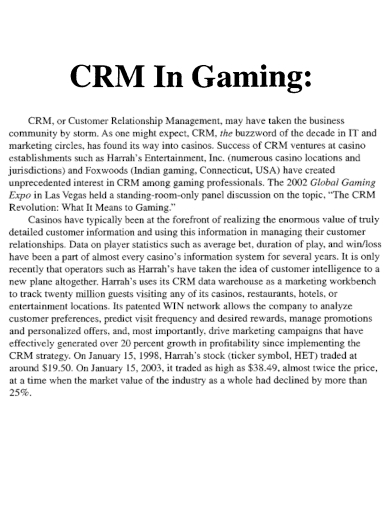
digitalscholarship.unlv.edu
19. CRM in eBusiness
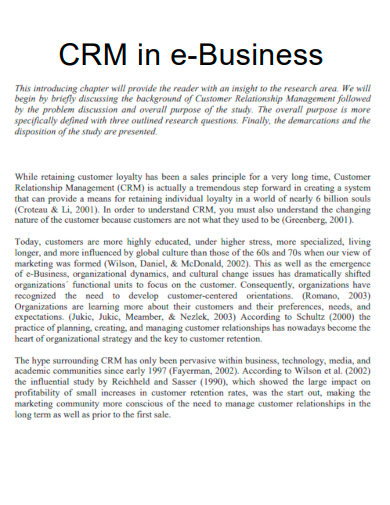
sedonacorp.com
20. CRM System in Higher Education
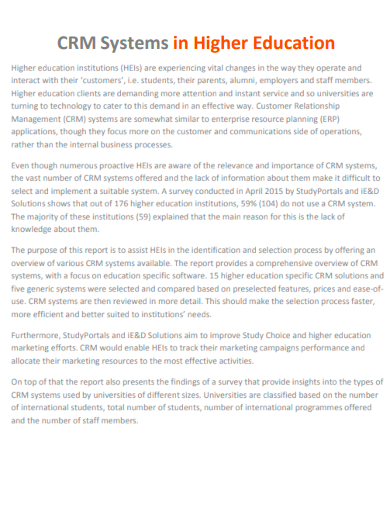
studyportals.com
21. CRM Systems for Small Businesses
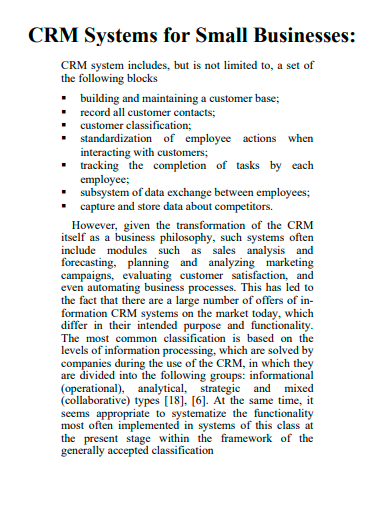
temjournal.com
What is CRM?
CRM, short for Customer Relationship Management, refers to the strategies, practices, and technologies that businesses utilize to manage and nurture relationships with their customers. It involves collecting and analyzing customer data, optimizing sales and marketing efforts, and providing personalized customer experiences. CRM systems serve as a centralized hub that allows businesses to store customer information, track interactions, and streamline communication across different departments. By leveraging CRM, organizations can enhance customer satisfaction, drive sales growth, and build long-term loyalty.
How to use CRM
Implementing a CRM system can significantly enhance your business’s customer relationship management efforts. To help you get started, here is a step-by-step guide on effectively utilizing CRM to streamline your customer interactions and improve overall organizational efficiency.
Step 1: Set Clear Goals
Define your objectives and determine what you want to achieve with your CRM implementation. Whether it’s improving customer satisfaction, increasing sales revenue, or enhancing marketing campaigns, having clear goals will guide your CRM strategy.
Step 2: Choose the Right CRM System
Research and select a CRM system that aligns with your business requirements. Consider factors such as scalability, integration capabilities, user-friendliness, and the specific features and functionalities that meet your needs.
Step 3: Gather and Import Customer Data
Collect relevant customer data from various sources, including existing databases, spreadsheets, or online platforms. Import this data into your CRM system to centralize and organize customer information in one place.
Step 4: Customize and Configure the CRM
Tailor the CRM system to your business processes by customizing fields, layouts, and workflows. Configure user access levels and permissions to ensure data security and privacy.
Step 5: Train and Educate Employees
Provide comprehensive training to your employees on how to use the CRM system effectively. Educate them about its benefits, functionalities, and how it integrates with their daily tasks. Encourage adoption and emphasize the value of accurate and up-to-date data entry.
Step 6: Integrate CRM with Existing Systems
Integrate the CRM system with other key systems your business uses, such as email marketing platforms, e-commerce systems, or customer support tools. This integration enables seamless data flow and ensures a holistic view of customer interactions.
Step 7: Implement Data Capture and Tracking Processes
Define processes for capturing and tracking customer interactions within the CRM system. This includes logging sales activities, recording customer inquiries, and tracking marketing campaigns. Consistently update and maintain accurate customer records.
Step 8: Implement Automation and Workflows
Leverage automation features within the CRM system to streamline repetitive tasks, such as lead qualification, email notifications, or follow-up reminders. Set up workflows to automate sales processes, customer onboarding, or support ticket escalation.
Step 9: Analyze and Utilize Data Insights
Utilize the reporting and analytics capabilities of your CRM system to gain valuable insights into customer behavior, sales performance, or marketing effectiveness. Use these insights to make data-driven decisions, improve processes, and enhance customer experiences.
Step 10: Continuously Improve and Adapt
Regularly evaluate and refine your CRM strategy based on feedback, data analysis, and evolving customer needs. Stay updated with CRM trends and technologies, and leverage new features to enhance your customer relationship management efforts.
FAQs
How does CRM contribute to relationship marketing?
CRM plays a vital role in relationship marketing by enabling businesses to understand their customers’ needs, preferences, and behaviors. By leveraging customer data stored in the CRM system, companies can create targeted marketing campaigns, personalized offers, and timely communication, fostering stronger relationships with their customers. This approach helps build trust, brand loyalty, and long-term customer satisfaction.
Can CRM benefit organizations beyond sales and marketing teams?
Absolutely! CRM systems offer valuable insights into customer behaviors and preferences, which can be utilized by various departments within an organization. For instance, customer service teams can access customer history and resolve issues promptly, while product development teams can gather feedback for product improvements. Additionally, CRM aids in collaboration, allowing different stakeholders to access and update customer information in real time, fostering a more coordinated and customer-centric approach across the entire organization.
How important are interpersonal skills in CRM implementation?
Interpersonal skills are crucial when it comes to successfully implementing CRM. As CRM systems are designed to improve customer interactions, having strong interpersonal skills enables employees to effectively communicate, empathize, and build relationships with customers. These skills empower employees to understand customer needs, resolve conflicts, and provide exceptional customer service. By fostering a customer-centric culture driven by interpersonal skills, businesses can maximize the value and impact of their CRM implementation.
In today’s dynamic business environment, CRM has emerged as a key enabler for organizations aiming to excel in customer relationship management. By leveraging CRM systems, businesses can align their sales, marketing, and customer service efforts, thereby driving customer satisfaction, loyalty, and ultimately, business growth. As we move forward, incorporating CRM into your customer service plan, checking out management report examples and templates, and exploring relationship marketing examples that make an impact will help your organization unlock its full potential and achieve its goals. Remember, successful implementation of CRM requires a holistic approach, commitment from all stakeholders, and the utilization of advanced technologies like ERP systems and . So, invest in CRM, embrace its power, and build lasting relationships with your consumers to stay ahead in today’s competitive landscape.

